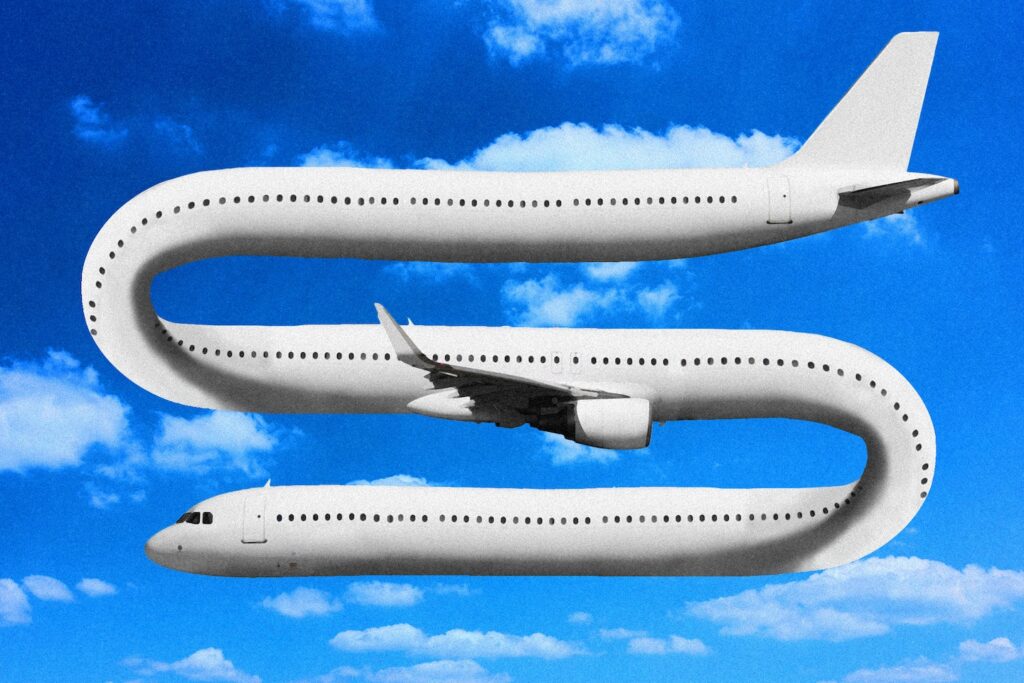Getting home is another story. Her same three-hour trip seems to drag on between layovers, traffic jams, and meals at rest stops. Biscoff has lost its novelty. In-flight movies don't work. As time goes on, he begins to wonder, “How did they do this?” and “Why God, why?” You vow never to leave the house again.
Why does one method feel so different from the other?
How optimism affects your ETA perception
When they say “It's not the destination, it's the journey”, it's the journey there We don't necessarily romanticize trips to our hometown.
Jonathon GoldsonWriter and ethicist say when traveling to a new place This means improved headroom. “There is an expectation that something more exciting, something more interesting, something new, something fun awaits us,” he said. “That way the trip becomes part of the experience.”
In contrast, Goldson said, he doesn't feel great when he gets home.
Sanam Hafeez, a neuropsychologist in private practice in New York City, says it's similar to what she experiences on her daily commute. During his commute, he can start his day fresh with so much on his plate. But when she's exhausted at the end of the day, she says, she's more likely to want to go home.
Hafeez experienced this after spending a long weekend at his villa in the mountains. She has done enough of the drive that there is no mystery as to how long it will take. There's just a lot of housework looming in her future.
“That's been my experience, specifically my intercontinental flight experience,” said Gary Small, chief of psychiatry at Hackensack University Medical Center and author of the book “The Memory Bible.'' “You're really looking forward to going home and seeing your family. Enough is enough.”
Small likens it to feeling like being back in school. Towards the end of the day, “we were always looking at the clock, waiting for it to be 3:15. The last few minutes felt like they took forever,” he said. . “We wanted to go out and come home and play. The psychological element really colors it.”
Or maybe it's the looming post-holiday blues. Germans even have a word for it, says travel planner Sandra Weinacht: “Post-Urraubs Depression.” Translation: Post-vacation blues. As they say, time flies when you're having fun. Time may pass when you are sad.
When it doesn't feel like it's too long to go home
in a very unscientific way In a poll I conducted on Instagram Stories, 126 respondents said the journey home felt longer, and 41 said it was getting longer. Several participants from the latter camp sent messages highlighting their experiences.
Sometimes the journey home feels short. teeth Particularly when flying east, the flight distance is shorter thanks to the tailwind phenomenon that increases the plane's speed. This can obviously work against you and shorten your trip there.
But sometimes it's just a feeling. Hafeez and Small point to the “round trip effect,” arguing that humans tend to inaccurately predict how long it will take, making the first leg of a trip seem longer. We may assume that the road to getting there will pass faster than it actually is, and we may end up “disappointing”.
“The return trip may actually feel short compared to the long journey you've already experienced,” Hafeez says.
There is a possibility that you will be able to practice to some extent by the time you return. The journey to get there may seem mentally demanding, but once you know the route, Small says it doesn't feel that difficult.
The round trip effect typically occurs when traveling somewhere for the first time. So if you're on a typical summer vacation, a familiar trip where you can arrive with your eyes closed, the return trip may seem long.
Small recommends introducing something novel to your trip home to ease the nerves. “That's where the time distortion comes in,” he says. “Instead of being in the moment and enjoying it, you focus on the anticipation of getting there.”
Small, a brain health and memory expert, often recommends, “Train, but don't tax your brain.” He says that might be doing puzzles (if you're not driving, of course), having a conversation, or challenging your mind by taking different routes while you're on the move.
“Even if you don't know the route, when you're discovering it, you feel like you're feeling the moment in a way rather than anticipating the future,” Small said.
If you're going to be in the car for a long time, Hafeez recommends downloading lots of podcasts and audiobooks, or setting up a phone date with someone you want to catch up on.
Or you can just tweak the way you travel entirely. Susan Schellen, founder of travel agency Couture Trips, advises her clients to plan their trips on a “bell curve” itinerary. Slow down before your vacation ends so you don't rush into exciting, action-packed days and leave exhausted.
You can also plan activities to look forward to when you get home to ease the crash and get back to your normal routine. I am forever grateful whenever I have a buffer day in my travels.


